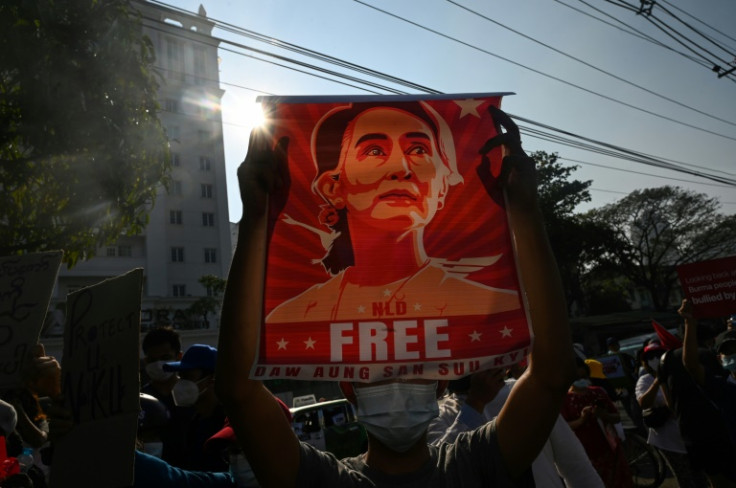'Dramatic Increase' In Myanmar War Crimes: UN Probe

UN investigators said Tuesday they had gathered strong evidence of surging war crimes in Myanmar, including mass executions and sexual violence, and were building case files to help bring perpetrators to justice.
The Southeast Asian country has been ravaged by deadly violence since a coup deposed leader Aung San Suu Kyi's government in February 2021, unleashing a bloody crackdown on dissent that has sparked fighting across swathes of the nation.
The United Nations' Independent Investigative Mechanism for Myanmar (IIMM) said it had evidence that Myanmar's military and affiliated militias were "committing increasingly frequent and brazen war crimes".
It pointed among other things to indiscriminate aerial bombardments, the burning of villages and mass killings of civilians and detained combatants, as well as torture and horrific sexual violence.
The investigation team warned in its annual report that "the number of incidents bearing the hallmarks of serious international crimes" had surged since the coup.
"Every loss of life in Myanmar is tragic, but the devastation caused to whole communities through aerial bombardments and village burnings is particularly shocking," Mechanism chief Nicholas Koumjian said in the statement.
"Our evidence points to a dramatic increase in war crimes and crimes against humanity in the country, with widespread and systematic attacks against civilians, and we are building case files that can be used by courts to hold individual perpetrators responsible."
The IIMM was established by the UN Human Rights Council in 2018 to collect evidence of the most serious international crimes and prepare files for criminal prosecution.
While the team has never been permitted to visit Myanmar, it said it had engaged with over 700 sources and had collected "over 23 million information items", including witness statements, documents, photographs, videos, forensic evidence and satellite imagery.
The team -- already cooperating with the International Court of Justice and the International Criminal Court -- said it "plans to accelerate its collection of evidence of the most serious international crimes".
The investigators said they were particularly looking for "linkage evidence" demonstrating responsibility of specific individuals, especially high-level officials.
The IIMM report explained that military commanders have a duty under international law to prevent and punish war crimes committed by those under their command.
"Repeatedly ignoring such crimes may indicate that the higher authorities intended the commission of these crimes," the report said.
It highlighted evidence of the use of child soldiers by "various armed actors", and said it was seeing "more and more evidence concerning torture, sexual violence and other forms of severe mistreatment at numerous detention facilities".
The evidence indicated that such crimes were "being committed with the highest levels of cruelty and harm to the victims, including rape with objects, other forms of humiliation, mutilation, gang or serial rape and sexual enslavement," the report said.
The IIMM said it was also investigating rampant sexual violence committed during the bloody crackdown on Myanmar's Muslim Rohingya minority that in 2017 resulted in the displacement of nearly a million people.
"Sexual and gender-based crimes are amongst the most heinous crimes that we are investigating," said Koumjian, saying these were "pervasive during the Rohingya clearance operations."
© Copyright AFP 2024. All rights reserved.





















